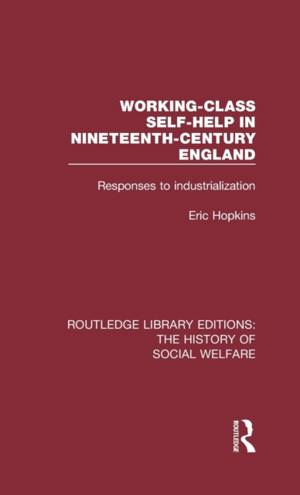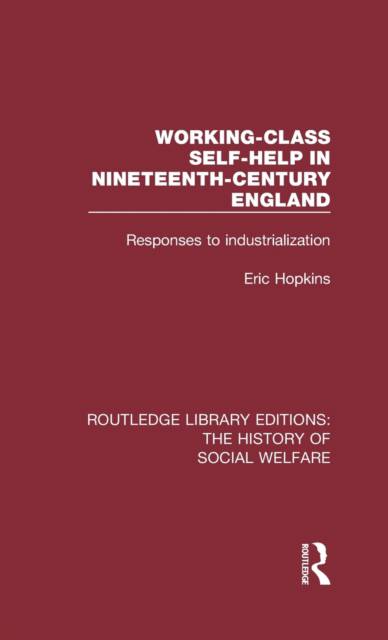
- Retrait gratuit dans votre magasin Club
- 7.000.000 titres dans notre catalogue
- Payer en toute sécurité
- Toujours un magasin près de chez vous
- Retrait gratuit dans votre magasin Club
- 7.000.0000 titres dans notre catalogue
- Payer en toute sécurité
- Toujours un magasin près de chez vous
Description
First published in 1995, this book provides a readable survey of the three major forms of working-class self-help in nineteenth century England: the trade unions, the friendly societies and the co-operative movement. It is accessible to an introductory student readership as well as providing a critical appraisal of all types and forms of self-help available to the industrial working-class. Unlike former studies, the author examines trade unionism alongside friendly societies and the co-operative movement and shows how each developed in response to the challenge of industrialization and the demands of urban industrial life. The strengths and limitations of self-help approaches are assessed and wider issues of working-class culture and identity are examined.
This book will be of interest to those studying the history of social welfare, class and industrial Britain.
Spécifications
Parties prenantes
- Auteur(s) :
- Editeur:
Contenu
- Nombre de pages :
- 254
- Langue:
- Anglais
- Collection :
Caractéristiques
- EAN:
- 9781138204751
- Date de parution :
- 08-09-16
- Format:
- Livre relié
- Format numérique:
- Genaaid
- Dimensions :
- 140 mm x 216 mm
- Poids :
- 449 g

Les avis
Nous publions uniquement les avis qui respectent les conditions requises. Consultez nos conditions pour les avis.






